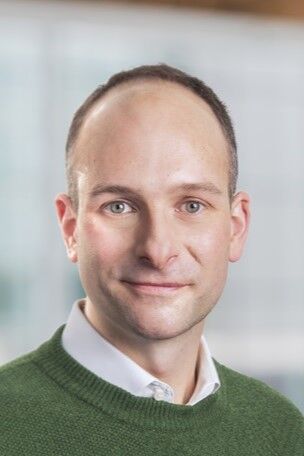
Ryan Rippel
ST. LOUIS — Ryan Rippel was midway through a degree at Harvard Law School when he realized he didn’t really want to practice law. A professor who specialized in government law gave him a lifeline.
Go to your home state of Missouri, he said. Study the government structure of ��ѿ��ý.
And so he did. Rippel found, of course, a mess. A city separated from a county of its same name, and that county with 90 or so municipalities and dozens of separate school and fire districts, and various agencies with tax bases that need to be fed. Rippel saw how that broken government structure helped feed the underlying poverty in various pockets of ��ѿ��ý, the sort of poverty that makes it hard for one generation to do any better than those who came before them.
Rippel has dedicated much of his professional life to solving that problem, creating the sort of economic mobility that helps people move from poverty to the middle class. Now, he’s part of a $30 million effort involving multiple nonprofits to help Missourians — in both rural and urban areas — make the sort of economic gains that for too long have been out of their reach.
People are also reading…
The effort, called , is supported by the , the and the . In his day job for the Bill & Melinda Gates Foundation, Rippel works on similar projects related to economic mobility, but this effort is separate from that. It’s a volunteer passion that grew out of his love for ��ѿ��ý, where he and his wife are raising their children.
“We have to begin to turn it around,” Rippel says.
The “it” in that sentence refers to that age-old element of the American Dream, that children will have the opportunity to do better than their parents. For much of the country’s history, that was true. found that about 90% of children born in the 1940s were able to move up in economic class to a place higher than where their parents began.
That’s not true anymore. The number has been declining for decades, and since the 1980s, less than half of Americans have that opportunity.
There are a lot of reasons for this, Rippel says: The cost of child care, the increased cost of higher education, the decline of manufacturing jobs. In Missouri, one of the things that makes it difficult to pass public policy to address the lack of economic mobility is that lawmakers too often think that problems in the city and rural areas are different.
The Upward Momentum project hopes to break through that, by funding projects in both urban and rural areas that are showing success. Among the first recipients of the money: , a nonprofit that has been advocating throughout the state — and in the Legislature — for more child care options, a problem in both rural and urban settings that limits a parent’s ability to work.
In some places in both the city of ��ѿ��ý and many rural parts of Missouri, there is a dearth of quality child care available for working parents; in other cases, a lack of transportation options to get children to and from facilities. It’s why various business groups have been lobbying Missouri lawmakers over the past few years to come up with funding solutions. Without quality child care options, companies can’t recruit employees.
Even when the child care options are available in Missouri, the state has had issues in the recent past getting payment to those who qualify for state programs, creating another layer of issues.
What Upward Momentum hopes to do is fund programs that are already showing a capacity to work, so that they can be replicated in various parts of the state, and, potentially lure more funding, either from the government or nonprofit sector. The first step is breaking through that age-old rural-urban divide in Missouri, to convince people and their elected officials to understand that when it comes to economic mobility, the challenges faced in one part of the state are not much different than another.
“We want to break through that narrative,” Rippel says. “We are all collectively in this problem together.”
��ѿ��ý Post-Dispatch metro columnist Tony Messenger discusses what he likes to write about.













